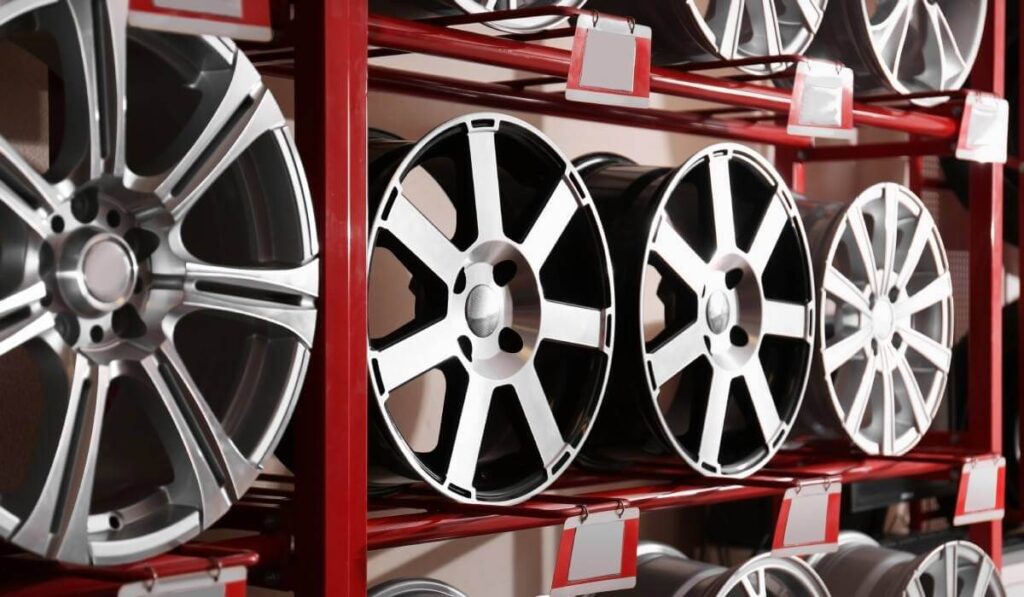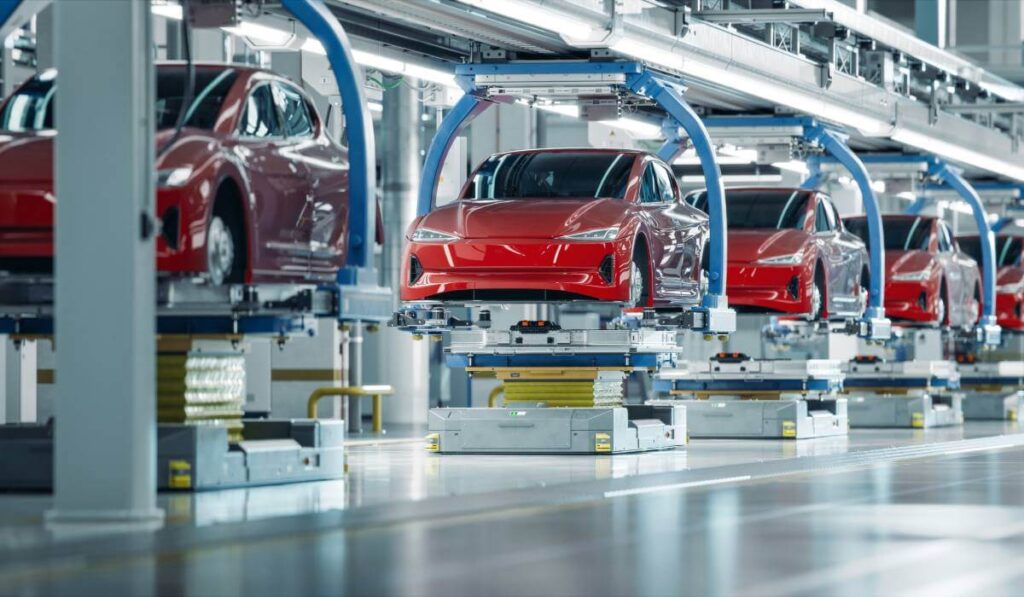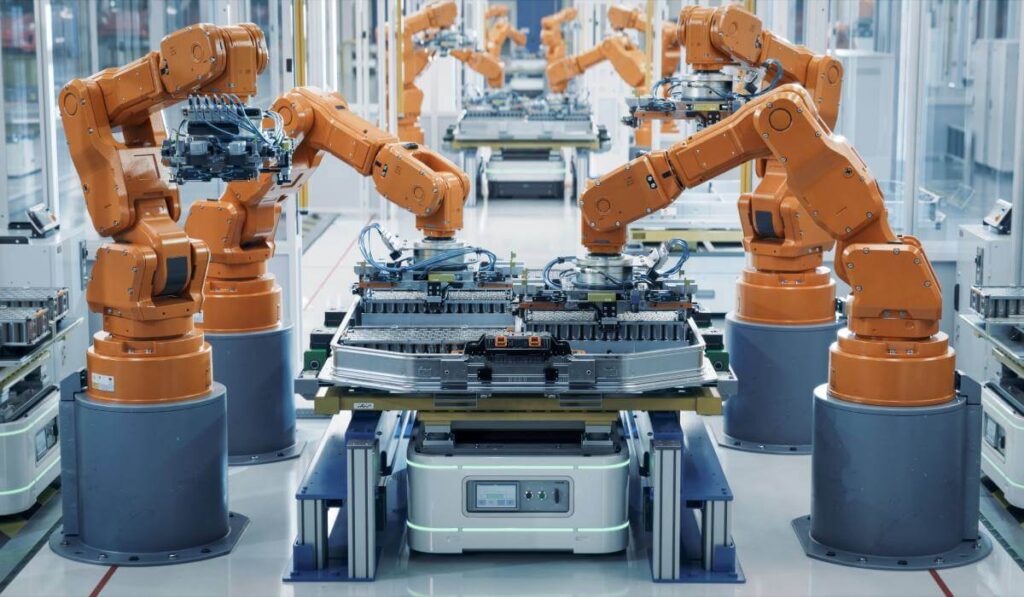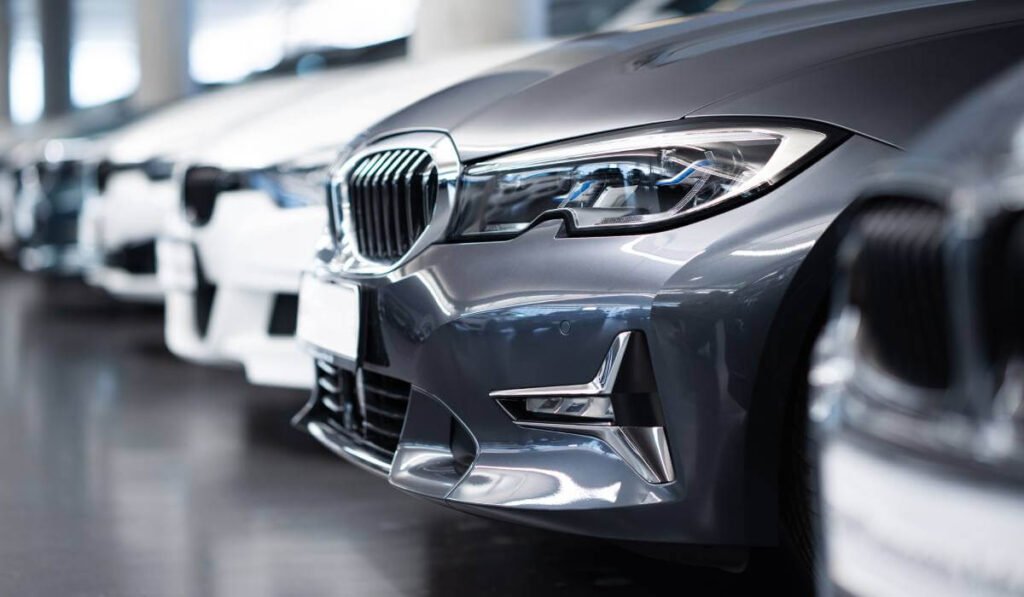Benefits of aluminium for the automotive industry
One-third the density of steel, highly durable and incredibly lightweight, aluminium offers a wealth of benefits that make the material an ideal choice for automotive production. However, in more recent years, the most attractive traits of aluminium have shifted to its sustainability potential and wide use in the manufacturing of electric vehicles.
Aluminium is a key material used in manufacturing vehicles. But why?
For more than 40 years, Alanod has been providing aluminium and metal surfaces to automotive clients across the globe. Throughout this time, we have seen the evolution of vehicle components and the growing reliance on aluminium as an essential manufacturing material. In this article, we delve deeper into how aluminium can be used and the benefits of choosing this material over steel.
How is aluminium used in the automotive industry?
As a versatile, robust material, it is no surprise that aluminium is used throughout many stages of vehicle production. Driven by the need to improve fuel efficiency, performance and sustainability, aluminium is used to manufacture both platform and component parts, such as:
- Body panels and structures: Aluminium can be used for outer body panels such as hoods and doors, along with the chassis and frame.
- Engine components: Engine blocks, cylinder heads and pistons are all made from aluminium due to its lightweight nature and thermal conductivity.
- Alloy wheels: Aluminium is the most popular material for alloy wheels, as its unsprung mass improves fuel efficiency and handling.
- Suspension components: As aluminium is far lighter than other materials, it makes an excellent choice for control arms and knuckles.
- Heat exchangers: Again, due to thermal conductivity, aluminium is widely used in the production of radiators, condensers and other heat exchangers.
- Interior components: Aluminium offers a premium feel on trims, decorative elements and seat frames.

What are the benefits of choosing aluminium?
Widely used in all vehicle types, from petrol and diesel to electric models, aluminium offers the perfect balance between functionality and aesthetics. Learn more about the key benefits below:
Aluminium is lightweight yet strong
By far, one of the most valuable benefits of aluminium when it comes to automotive production is its impressive strength-to-weight ratio. It offers an excellent alternative to steel, weighing just one-third of its counterpart yet providing the same level of strength when alloyed and fabricated at a high standard. This significant reduction in weight benefits both fuel efficiency and performance.
As aluminium offers a lower density compared to steel, the overall weight of the vehicle is reduced, helping to improve fuel efficiency. Not only this, but lighter vehicles are able to accelerate faster while offering better handling and braking performance.
In terms of durability, aluminium improves the lifespan of components in more ways than one – the first down to its resistance to corrosion and the second due to its lightweight nature. The lighter the vehicle, the less friction is created on parts such as tyres and brakes, reducing wear and tear.
Aluminium helps to achieve sustainability standards
As mentioned above, aluminium helps to enhance fuel efficiency, which has a direct positive impact on the environment. But the true sustainability potential exceeds far beyond this.
Aluminium has become an essential material in the production of electric vehicles, helping manufacturers to meet standards. Electric vehicle batteries alone can weigh anywhere between 1,000 and 4,000 pounds; this is then increased further when dense materials such as steel are used for the remaining components. Together, this weighs the vehicle down and forces it to use more battery power to move, making it harder to meet environmental standards. By swapping steel for aluminium, manufacturers can continue to design their vehicles with high-performing batteries while limiting the added weight needed for components.
But that’s not all. Aluminium is one of the only materials that can be recycled multiple times without losing its properties. This means not only can manufacturers recycle old materials but also manufacture their vehicles with recycled materials from the get-go.

Aluminium is easy to customise to specification
It has been evident throughout this article that aluminium can be used for several components in a vehicle, and that is down to its versatility in design. Aluminium is highly malleable, meaning it can be easily shaped to fit unique specifications, a less common trait with other materials. It can be cast, stamped and extruded, allowing manufacturers to make more aesthetically pleasing components without compromising functionality.
When it comes to colour variations, the options are just as diverse. At Alanod, our aluminium can be both anodised and lacquered, offering our clients a broader scope for customisation. Anodising is best suited to components that require a metallic or two-tone effect, whereas lacquering offers a brighter range of shades, such as blue, red and green.
Aluminium can make vehicles safer
When it comes to vehicle design, safety remains at the forefront of any decision. The good news is that aluminium offers several fantastic safety benefits, such as:
- Structural integrity: We’re aware that aluminium offers a high level of strength, leading to more stability, but did you know that components can also be reinforced with aluminium to improve the overall rigidity of the vehicle? Pillars, roof rails and cross-members can all be equipped with aluminium to offer better protection during rollovers and side impacts.
- Thermal management: Aluminium offers excellent thermal conductivity, which helps dissipate heat from clinical components such as the engine and battery packs. This reduces the risk of overheating and potential fires.
- EV battery protection: In electric vehicles, aluminium is commonly used for battery housings. These housings provide robust protection for battery packs, shielding them from damage and reducing the risk of a fire during a collision.

Learn more about the capabilities of aluminium with Alanod
The use of aluminium in the automotive industry cannot be understated. Aluminium is a clear leader in enhancing vehicle performance, fuel efficiency, and safety while offering environmental and economic benefits. Its versatility and beneficial properties make it a crucial material in modern vehicle design and manufacturing, and we can certainly see why.
For more information on how aluminium can be used in your production or to understand customisation options, please do not hesitate to contact Alanod. Our team is backed by decades of experience and extensive industry knowledge, and we are always more than happy to guide you through the process.

